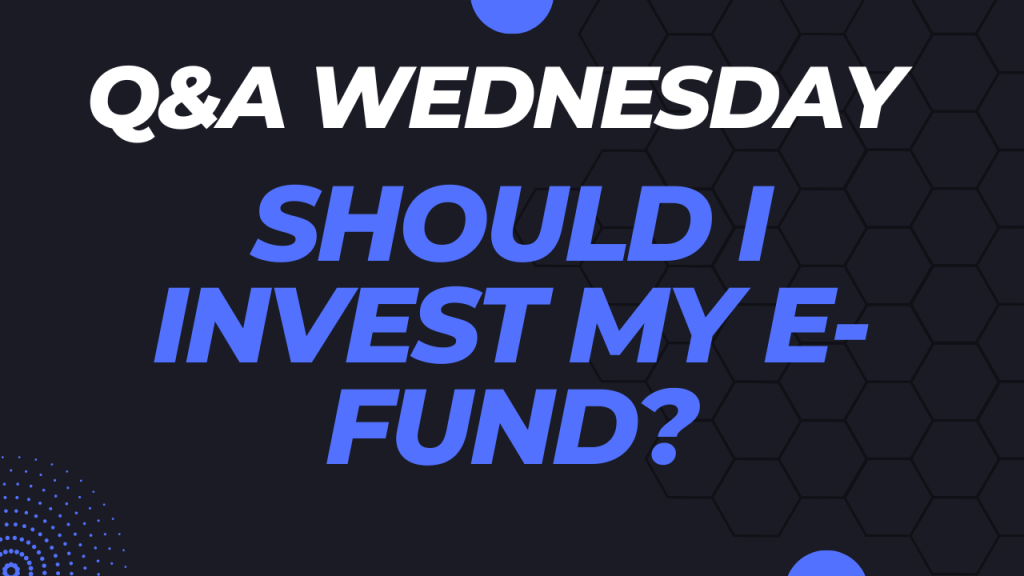Welcome to the very first Wednesday edition of millionaire habits. Every Wednesday, I answer a frequently asked question so more than 20,000 people on Millionaire Habits can benefit from the answer.
💡 Question: “Steve, I keep my emergency fund in the stock market, but you’ve said that’s a bad idea. Why shouldn’t I invest my emergency fund so it grows?”
Investing your emergency fund sounds great on the surface, but it’s a bad idea for long-term money management (and basic tax implications).
Here’s why.
Investing your emergency fund is a bad idea because you always want to be in control of when you sell stock.
While investing can potentially yield higher returns, there are four primary reasons why you shouldn’t invest your emergency fund:
- Risk of loss: Investments inherently come with risk. They can fluctuate in value and may result in losses, especially in the short term. If your emergency fund is invested and the market experiences a downturn, you may be forced to sell your investments at a loss to access the funds when you need them the most.
- Liquidity concerns: In times of emergencies, you may require immediate access to cash. Investing your emergency fund may tie up your money in assets that are not easily liquidated. Realizing the value of your investments and converting them into cash can take time, and you might incur penalties or fees for early withdrawals.
- Capital gains taxes: You’ll be responsible for capital gains taxes if you sell stock that increased in value. This means your unexpected expense forced you to sell a stock you wouldn’t have sold otherwise and increased your tax liability – a double whammy.
- Opportunity cost: The primary purpose of an emergency fund is not to generate significant wealth but to provide financial security and peace of mind. The potential gains from investing your emergency fund might not outweigh the benefits of having readily accessible cash for unexpected situations.
What should you do instead? Separate your emergency fund into a High-Yield-Savings-Account, or HYSA (there are plenty of options right now).
For instance, our Ally savings account generates more than 4% guaranteed returns. Our emergency fund is separate, safe, and guaranteed.
Note: This email is NOT sponsored by Ally. I tell it like it is, with or without a company paying me to do so.
– Steve



